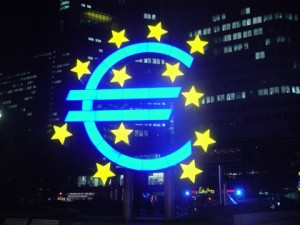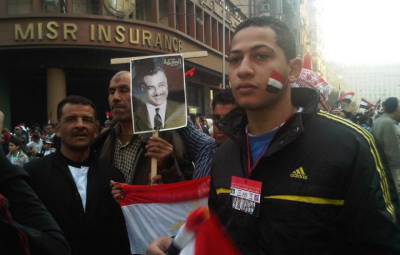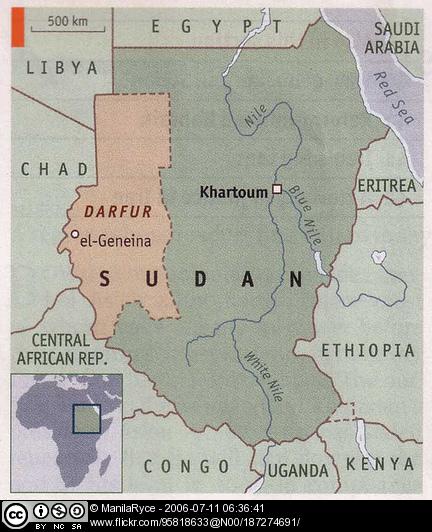Religious freedom, religious equality and religious establishment: a toxic brew
Religious freedom, if it means anything at all, must mean the ability of people of all faiths and none to practice their religion, to form religious associations and perhaps, if necessary, to be exempt from some civil laws, as Sikhs are relieved of the requirement to wear motorcycle helmets. These exemptions should be offered uniformly, based upon the religious beliefs and the impact of the exemption, not on the constitutional status of the religious organization involved. Religious equality means treating all religions the same: Christians, Sikhs, Hindus, Buddhists Muslims and Jews, as well as all denominations within each of them. However, religious establishment (a term that may well be essentially contestable in British constitutional law) necessarily carries privileges with it …

Europe in the Soup: Three Scenarios
In ‘Duck Soup‘ – the 1930s Marx brothers’ film – a powerful rich lady tells the ailing government of Freedonia, she will only bail them out with another loan, if her favourite – Groucho Marx – becomes president: chaos follows. Europe may or may not escape chaos as the euro crisis unfolds. But when asking what sort of European Union will emerge out of the Duck Soup of the crisis, there are no upbeat scenarios. Desperate Politics drives all scenarios The euro crisis has battered the EU’s political dynamics, clout and democratic credentials. The sight of technocrats running the Greek and Italian governments has been criticised as anti-democratic . But Europe’s political failings go beyond this. Neither Angela Merkel nor …

The Myth of ‘Sixty Years of Oppression’
Reem Abou-El-Fadl has recently published an article in Al-Akhbar English newspaper entitled ‘From Nasser to Tantawi: The Myth of “Sixty Years of Oppression”‘. The article considers the connections that have been made in Egypt between the July 1952 Revolution, launched by the Free Officers movement, and the January 2011 Revolution, launched by this year’s popular uprising in Egypt. The article acknowledges that military officials first came into government after the July Revolution, but it goes on to explore the deceptive myth of ‘sixty years of oppression’ since, which has been heard often in recent months. ‘Yet today’s generals are protecting an entirely different set of interests from those important to the Free Officers. They have presided over months of delay …
Mutualism and social democracy
The role of the mutual sector in forging a strong economy and a more equal society is fast becoming hotly contested territory in British party politics. In the wake of the most severe global depression for more than eighty years and the search for viable and practical alternatives to neo-liberalism, politicians across the ideological spectrum have ostensibly vied to champion and take ownership of the mutualist cause. The values and institutions of mutualism have the potential to act as a vehicle for a new politics of the public interest after the financial crisis, or so the argument goes. For the left in particular, mutualism offers an alternative to the Coalition government’s invocation of ‘the big society’. Nonetheless, the operating frameworks …

The Eurozone Council: are we a step closer to a European Government?
When in 1992 the decision to provide Europe with the single currency was adopted, voices were raised claiming that it may be difficult to have a monetary union without a political union. This is considered to be particularly the case on occasion of “asymmetric shocks” which may hit weaker “peripheral economies” in a monetary union, but not stronger “core ones”. The Eurozone, even at its infancy, has never constituted an Optimal Currency Area, but at a time of relative economic growth the Stability and Growth Pact (SGP) was by most considered as a sufficient tool to secure the sustainability of the single currency. However, the economic crisis of the early 2000s and the current “Euro crisis” have proved the opposite. …

China and India in Sudan: an Uncertain Relationship
On June 21, at the Manor Road Building, Oxford University, Daniel Large and Luke Patey discussed the role of China and India in Sudan’s oil sector. This industry is of particular interest today, as on the 9th of July the country will split into Northern Sudan and Southern Sudan. The recent border clashes illustrate the lack of agreement between the two sides about the sharing of oil revenues. The two speakers situate this issue within an international context by contrasting the involvement of China and India and discussing the long-term prospects of Sudan’s oil industry, among other interesting questions. China’s involvement in Africa has become a hot topic in media and political discussions. This has concealed that of other Asian …
Effective governance
The credit crunch and the disillusion with parliamentary democracy prove that there is a problem with the way we govern ourselves, as organisations and states. I would like to propose a solution which, if implemented, would go a long way to providing effective governance, economic growth, and social stability. THE PROBLEM All our existing institutions and regulations failed to prevent the credit crunch, the Madoff and Stanford frauds, the obvious risk of bankers lending to people who can’t afford to repay, and the collapse of numerous financial organisations. The banking crisis was caused by banks knowingly lending to people who couldn’t repay; therefore the crisis was predictable. So why did they do it? Because current governance processes don’t work. In …

Dr Marwa Daoudy Discusses the Syrian Uprising
On May 31 2011 Dr Daoudy shared her thoughts about the events in Syria with St. Antony’s students and faculty over a lunch seminar organised by Warden MacMillan. Ever since it started at the end of January, the Syrian uprising has been continuously in the news. Dr Daoudy discussed the opposition, the army, and the potential future scenarios for Syria. The opposition, it shares some characteristics with that of Egypt and Tunisia. It’s led by youth with no overriding ideology or religious affiliation. Dr Daoudy points out that the advantage of this type of opposition is that it can be labeled as anything, but the disadvantage is the lack of leadership and the inherent divisions within the opposition movement. The …









